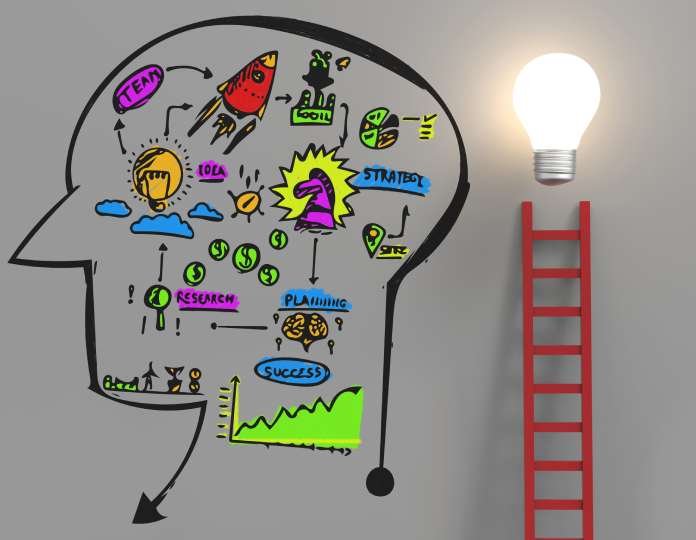The ability to perceive things as they truly are is known as perspective. The ability to distinguish between illusion and reality is what it is. It would require a great deal of talent to have an ideal perspective. It is almost impossible. To truly have a perspective on anything, there are just too many variables that can affect one’s visual and cognitive processes. Gaining a deeper understanding of perspective requires acknowledging that it is always influenced by our inherent limits and imperfections as human beings. Truth is another name for perspective, which is the capacity to look past illusion and into reality.
The necessity of having a different viewpoint
First, adopting a different perspective can help improve communication and lessen misinterpretations and distortions by affecting the way messages are presented and understood.
Second, adopting a perspective is necessary for a realistic evaluation of aligned and conflicting interests as well as a precise assessment of their respective merits and validity. In order to get to a consensus on what opposing interests should be given up in order to advance the shared requirements, concerns, benefits, and advantages, parties must have this knowledge.
The trick is to think about the other person’s point of view. This can lead to a real solution rather than a compromise. There’s a story about Stephen Covey and his friend, who said it’s risky to go for win or lose because you can be exploited. Then he went on to explain how, in the course of negotiations, he didn’t get a good offer. “Why are you going for a loss and win?” Covey asked him. It was like a revelation to him when he realized he was going to lose/win rather than win/win.
Also Read: Embracing Adulthood: A Perspective for Feeling Personality Types
To see another person’s point of view, accept it, and then seek the best possible solution for both parties may take courage. Sharing your opinion with someone else requires discipline and the pursuit of a winning solution.
The importance of personal perspective in shaping our lives
A person’s unique perspective can have a significant impact on their understanding of the world around them. Our views form in a part of our cultural background, experience, beliefs, and values which have an impact on how we perceive and interpret the world.
For example, a person raised in a society that values independence and self-actualization can measure success in terms of his or her claim and prioritize their goals over the group’s. In any case, someone who grew up in a society that values community and collectivism may view success as a measure of how well they blend in and prioritize the needs of the group over their objectives.

Similarly, our experiences and ideas influence our perceptions of reality and the world. For example, if someone has experienced estrangement or persecution, they are more prone to notice instances of it and to believe that everything in the world is wrong.
Our lens of how we see society can have an impact on how we relate to people and build connections. Someone may be more wary and less trusting of others if they have had bad relationships in the past.
On the other hand, someone may interact with others more frank and trustworthy if they have had positive encounters.
Also Read: Adapting Perspectives: The Interplay of Acculturation and Assimilation
Self-efficacy
Imagine being able to take on new challenges with unwavering confidence, recovering from setbacks with more resiliency, and being inspired to pursue your highest goals. Imagine living a life where your deep sense of self-assurance overwhelms your doubts and worries. Self-efficacy opens up this universe, and decades of research by the renowned psychologist Albert Bandura supports it.
With tried-and-true methods and useful activities, you’ll acquire the skills you need to improve your self-efficacy in a number of areas of your life. Whether your goal is to grow personally, advance professionally, or learn a new skill, self-efficacy is the light that can guide you to extraordinary accomplishments.
Strategies for Enhancing Self-Efficacy
Establishing Realistic Goals:
To start, decide on objectives that will test you but not overwhelm you. Divide more ambitious goals into more manageable benchmarks. Your self-efficacy increases with each accomplishment that you achieve. As you reach these benchmarks, progressively raise the difficulty of your objectives. You can lay a strong foundation of competence and confidence by following this methodical strategy.
Developing Competence:
Get the information, expertise, and experience required to succeed in the field of your choice. Your confidence in your skills is strengthened by the concrete proof of your progress that comes from ongoing learning and practice. Look for courses, training, and skill-building opportunities. Accept tasks that are beyond your current skill level, understanding that every effort advances your competence.
Mental visualization and mental rehearsal are powerful techniques for raising self-efficacy. Imagine yourself reaching your objectives with success. Make a clear mental image of your accomplishment by using all of your senses. You can strengthen your conviction in your ability by sending signals to your brain through a mental rehearsal of your victories. This method sets you up for success and gives you the confidence you need to perform.
Also Read: Exploring Id, Ego, and Superego in Personality
Psychological Perspectives
The foundation for popular psychological perspectives is laid out by this school of thought. It gave rise to great psychologists, such as Sigmund Freud, Friedrich Nietzsche, Carl Jung, Jean Piaget, and Edward Thorndike, who were radical thinkers who dared to explore astounding perspectives on life and the universe. Since there are numerous ways to approach any given topic in psychology, these viewpoints serve as the foundation for the counseling profession. These psychological viewpoints contain a romanticism that exists not between two individuals but rather between thought-provoking concepts and the supporting ideas that delve into them.
How cultivating a positive mindset can unlock new opportunities?

1. Embracing a growth mindset:
Perspective is essential to cultivating a growth mentality, which is the conviction that our potential may be enhanced by commitment and diligence. We become more open to new opportunities and conquer obstacles with resiliency and determination when we see challenges as chances for learning and development.
2. Broadening your perspective:
We must broaden our view of the world in order to grow both personally and professionally. Our horizons can be expanded and our creativity sparked by interacting with varied perspectives, seeking out alternative points of view, and embracing cultural diversity. It helps us to think through other options and come to better judgments.
3. Overcoming Limiting Beliefs:
Moreover, perspective might assist us in escaping restrictive ideas that impede our progress. Often, we are unable to realize our full potential because of self-imposed limits. We can challenge these beliefs and create new chances for ourselves by changing our perspective.
4. Finding the Silver Linings:
Finding the good even in bad circumstances is possible when we have an optimistic outlook. It’s about accepting the lessons that setbacks provide and reinterpreting them as opportunities for growth. This change in perspective, not only gives us the resilience to overcome obstacles but also increases our drive and will to succeed.
5. Collaboration and Empathy:
Having a different perspective encourages empathy and teamwork, two traits that are vital in the linked world of today. We can foster stronger bonds, spur innovation, and establish a more welcoming and caring workplace by actively seeking out various thoughts and paying attention to others’ opinions.
Also Read: Teens and Dating: Understanding the Insights and Perspectives
How to see through the eyes of another person?
Listening with empathy is the greatest method to accomplish this. This entails listening to the other person and making an effort to understand their perspective on the world. This does not imply that you abandon your viewpoint. It indicates the addition of a different perspective. There’s no need to be concerned if this slightly modifies your opinion. On the contrary, it’s fantastic that you now have a more accurate understanding of the problem.
If you are alone, you might watch something on television. However, you might broaden your perspective and attempt to view the world from the perspectives of others before passing judgment on them. It is not as simple as it seems. You can only genuinely claim to see things from their perspective, if you can comprehend other people’s behaviors and sense their motivations within yourself. If not, there is a certain level of ignorance, which eventually translates into an overly limited viewpoint. Sensing their intentions, of course, does not imply agreement; rather, it implies understanding them.
Extending your perspective is part of the process of personal growth. It is the process of opening our eyes to more fundamental truths and expanding our vision beyond our ego.
Conclusion
In a constantly shifting world, perspective is an effective instrument that may shape our achievements and personal development. We can expose ourselves to fresh ideas and opportunities by examining our own beliefs, adopting a positive outlook, and accepting a variety of thoughts. So let us, in our professional as well as our personal lives, make the most of perspective, develop empathy, and promote teamwork.













Leave feedback about this